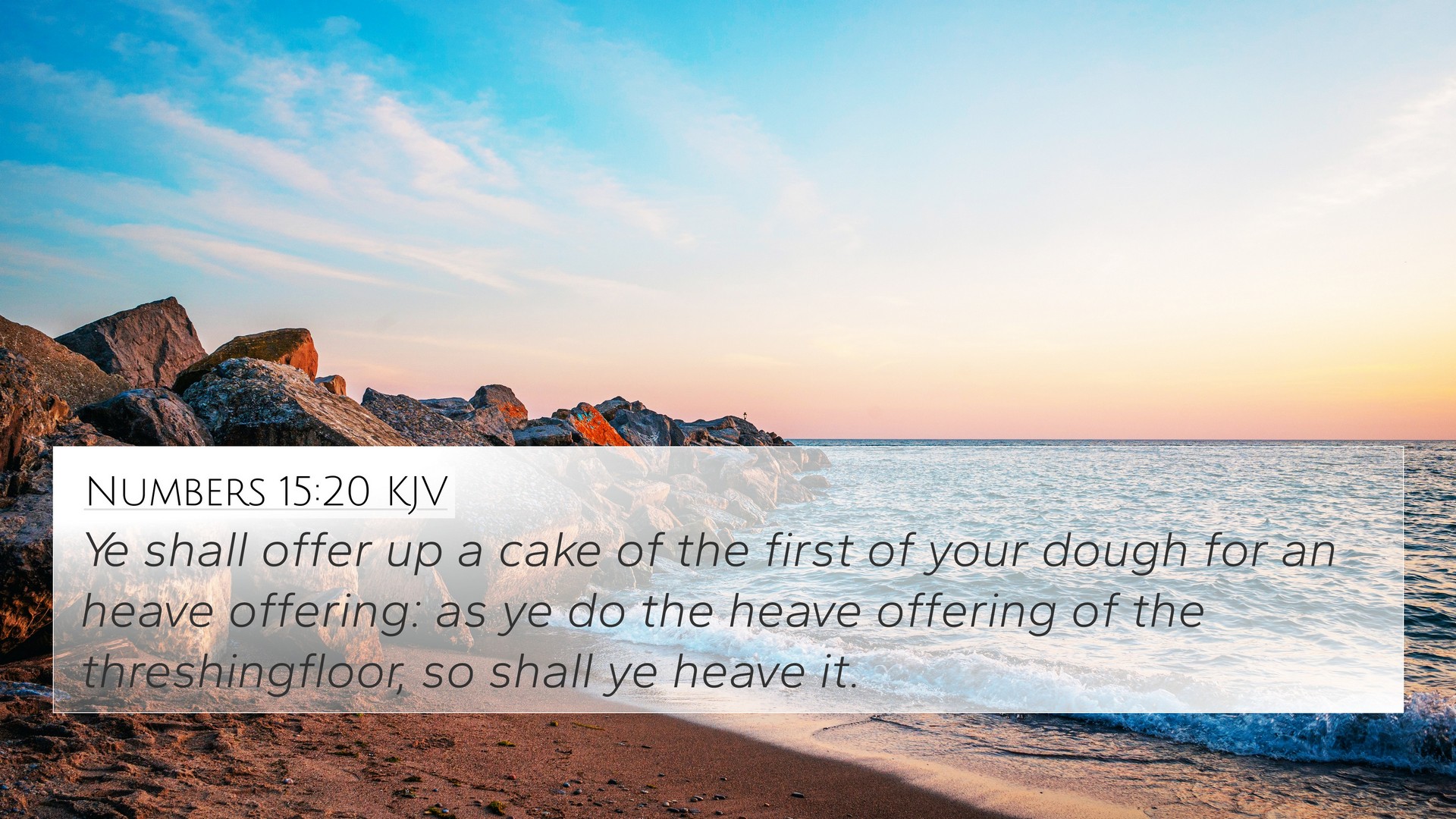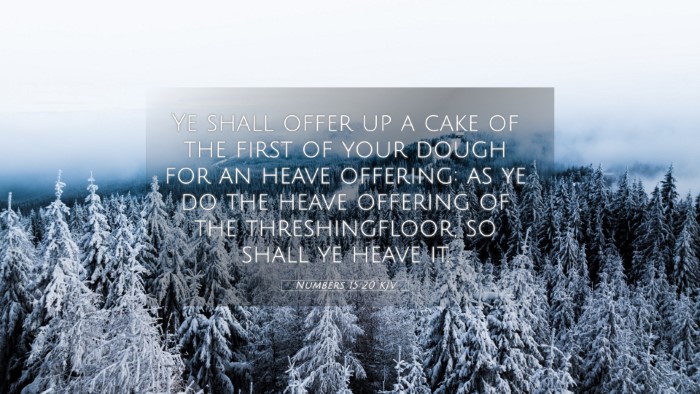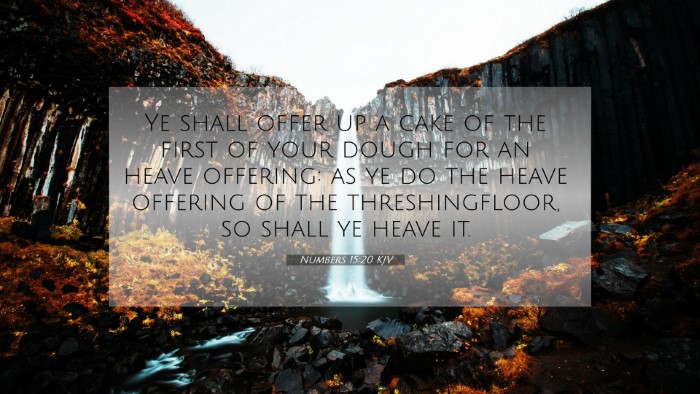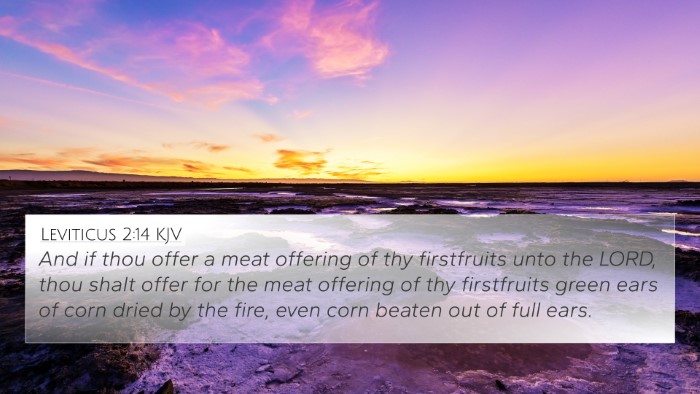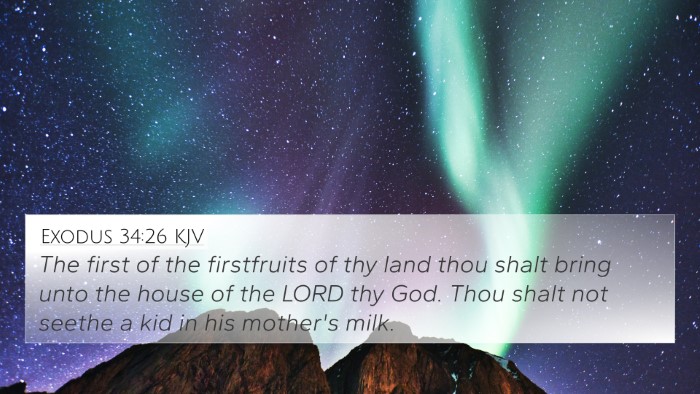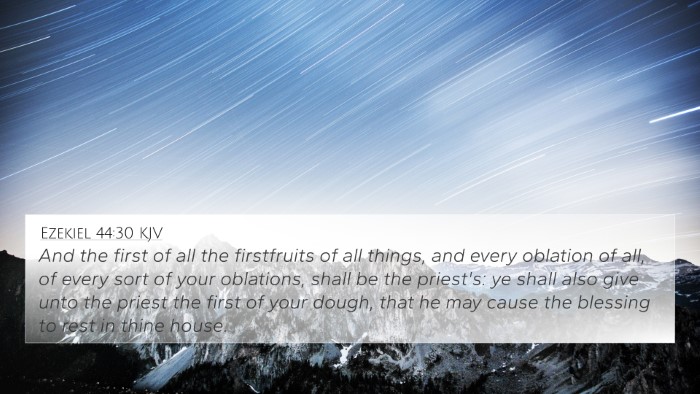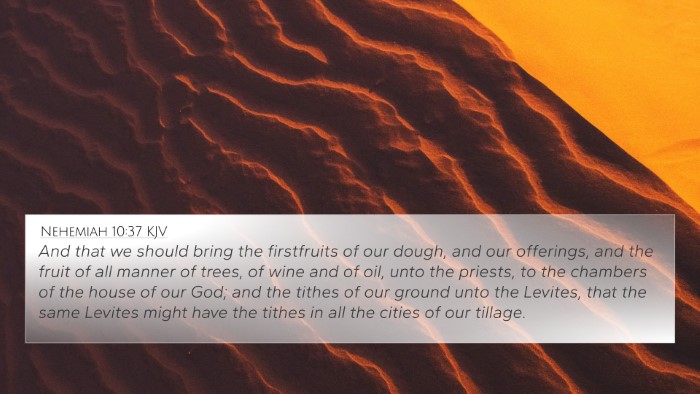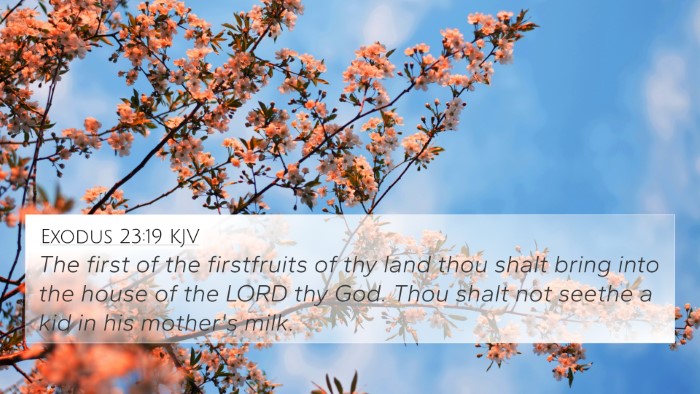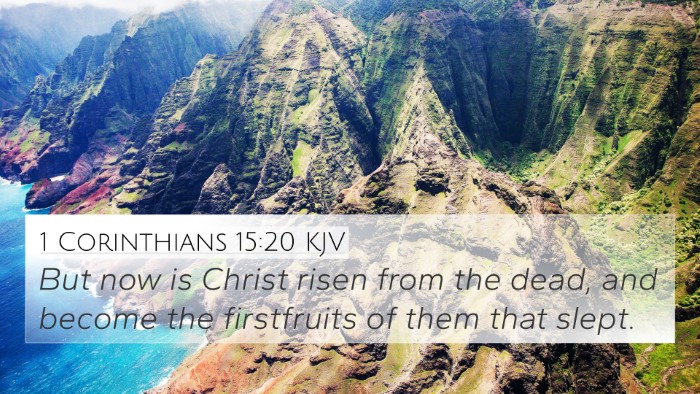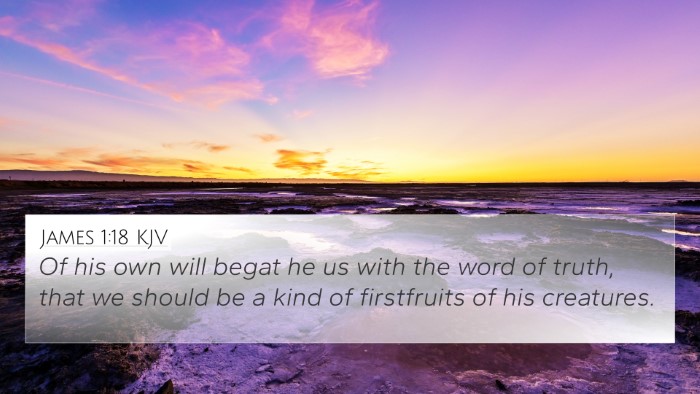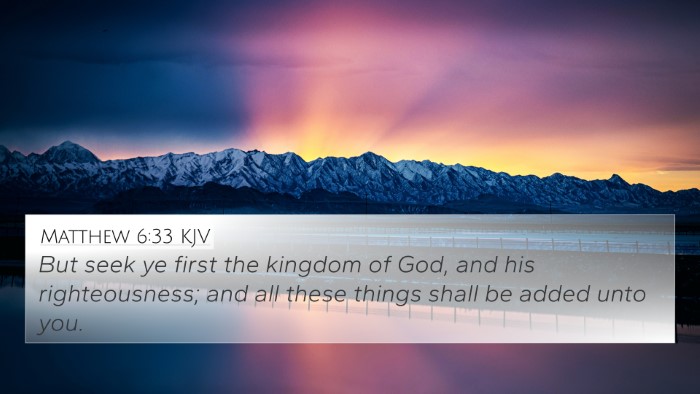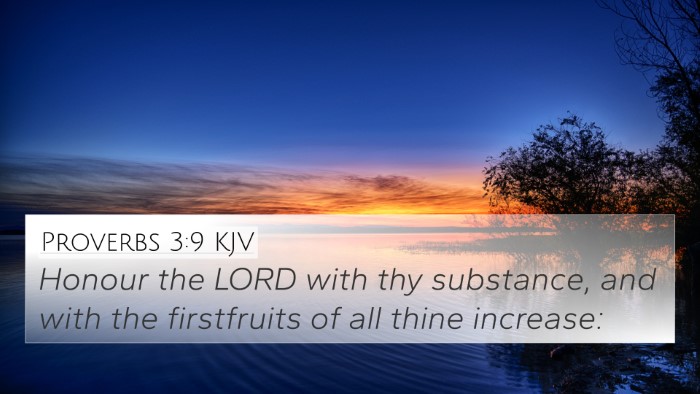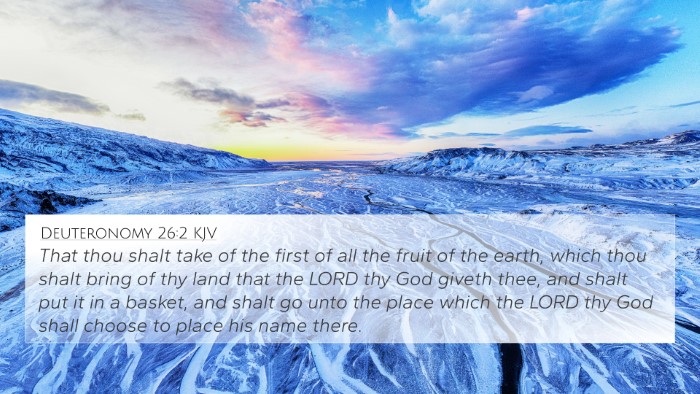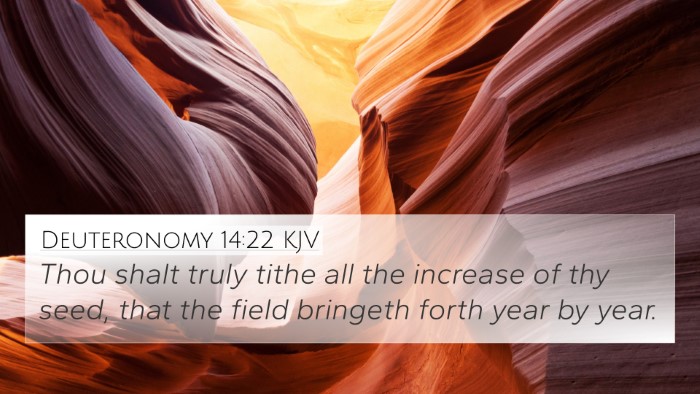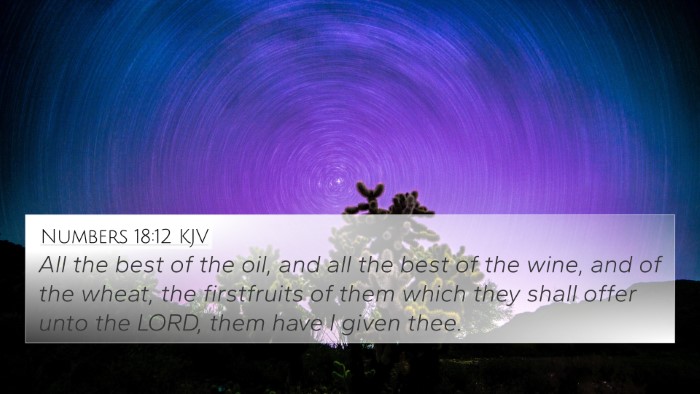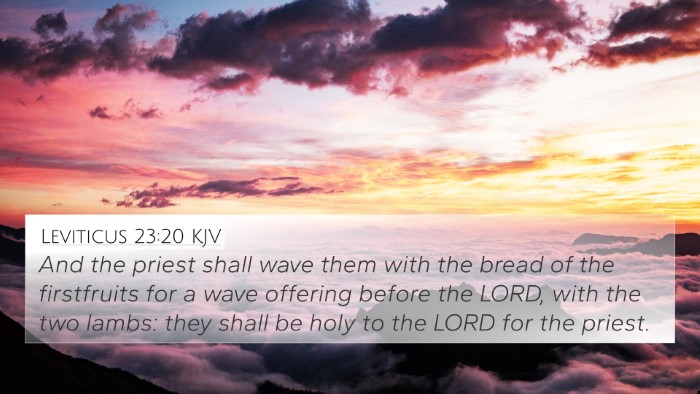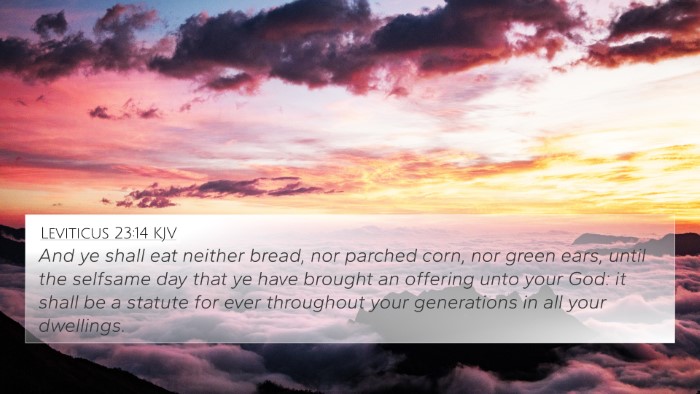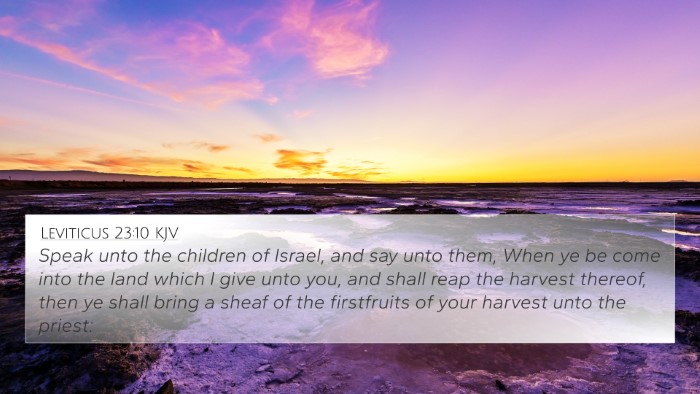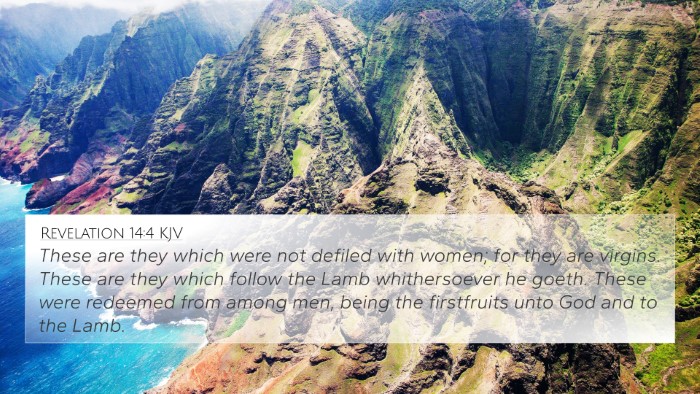Understanding Numbers 15:20
Numbers 15:20 reads: "You shall present a cake of the first of your ground meal as a heave offering; as a heave offering of the threshing floor, so shall you heave it." This verse is part of a larger section concerning offerings and the various types of sacrifices that the Israelites were commanded to bring before God. Understanding this verse requires insight into the cultural and liturgical contexts of ancient Israel as well as the theological implications of what these offerings represent.
Commentary Insights
This passage has been examined in various public domain commentaries, including those by Matthew Henry, Adam Clarke, and Albert Barnes, each offering unique perspectives that help to clarify its meaning and significance.
Matthew Henry's Commentary
Matthew Henry emphasizes the importance of offerings as a sign of gratitude and acknowledgment of God's providence. The act of offering is seen as a response to God's blessings in the harvest. He points out that the Israelites were to present their offerings from the first fruits, indicating that the best of their yields were to be consecrated to God. This act serves not only as an act of worship but also as a reminder of their dependence on God for sustenance.
Albert Barnes' Commentary
Albert Barnes elaborates on the significance of the heave offering, indicating that it signifies an act of lifting up to God what belongs to Him. He notes that the expression "as a heave offering of the threshing floor" serves to solidify the connection between the Israelites’ agricultural practices and their spiritual life. The specificity of the offerings highlights the structured approach to worship that was intended to draw the people closer to God and reinforce their covenant relationship with Him.
Adam Clarke's Commentary
Adam Clarke reflects on the theological implications of the cake offered. He suggests that the cake made from their ground meal symbolizes the entirety of their labor and how it should be dedicated to God. Clarke emphasizes that this practice not only nourished the priests but also maintained a communal relationship with God. The act of sharing the harvest through offerings fosters a sense of community and shared faith among the Israelites.
Thematic Connections and Cross-References
This verse connects with various other Bible verses that discuss the theme of offerings and the significance of dedicating the first fruits to God. Here are several cross-references that relate to Numbers 15:20:
- Exodus 22:29: "You shall not delay to offer from the fullness of your harvest and from the outflow of your presses." This verse emphasizes the requirement to present offerings without delay.
- Leviticus 2:14: "If you bring a grain offering of your first fruits to the LORD, you shall offer for the grain offering of your first fruits fresh ears, crushed grain from new growth." This verse reinforces the concept of offering the first and best to God.
- Proverbs 3:9: "Honor the LORD with your wealth and with the first fruits of all your produce." This encapsulates the principle behind offering the first fruits as a sign of faith and honoring God.
- Deuteronomy 26:2: "You shall take some of the first of all the fruit of the ground which you harvest from your land that the LORD your God is giving you..." This command details the procedure for presenting first fruits, connecting it clearly to Numbers 15:20.
- Matthew 23:23: Jesus acknowledges the practice of tithing and the importance of heart behind offerings—indicating that while the act is crucial, it must stem from a sincere heart.
- Hebrews 13:15: "Through him then let us continually offer up a sacrifice of praise to God, that is, the fruit of lips that acknowledge his name." This New Testament perspective connects the principle of offerings through worship to Jesus.
- 1 Corinthians 3:9: "For we are God's fellow workers. You are God's field, God's building." This speaks to the notion of laboring in the field as an offering in the New Covenant context.
The Importance of Offerings in Worship
The significance of offerings describes not merely an obligation but a deep expression of faith that ran throughout Israelite worship. Offering represented acknowledgment of God's sovereignty and providence. This concept is echoed in both the Old and New Testaments, where the act of giving remains integral to the believer's relationship with God.
Tools and Methods for Cross-Referencing Biblical Texts
To fully appreciate the interconnections across the Scriptures, utilizing tools such as a Bible concordance and cross-reference guides can aid in the study. These resources assist in identifying parallels and thematic links that enrich understanding and deepen insight into God’s message.
Conclusion
Numbers 15:20 serves as a crucial reminder of the role of offerings in cultivating a relationship with God. By examining this verse through the provided commentaries and understanding its connections to other scriptures, we can derive a richer comprehension of God's principles regarding worship and devotion.
